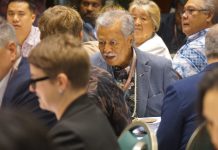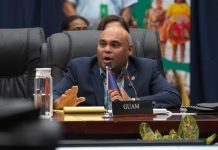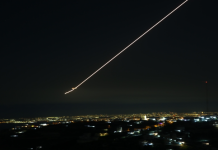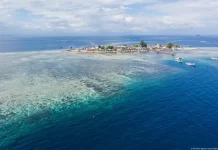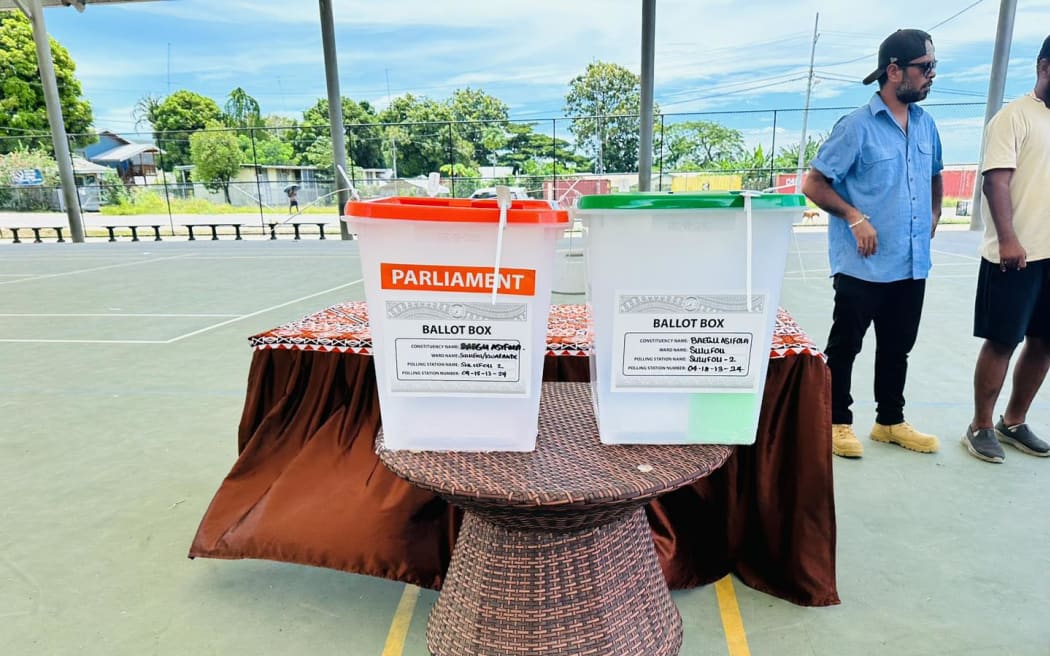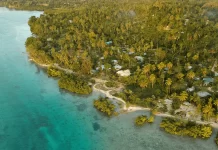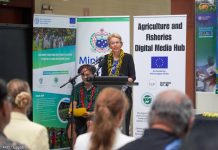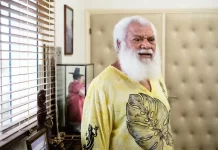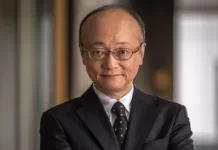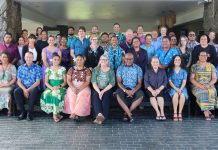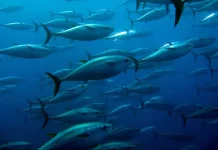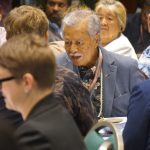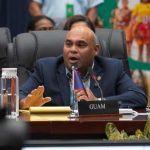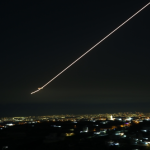By Priestley Habru, University of Adelaide and 360info Staff
Prime Minister Manasseh Sogavare could retain power on April 17, but who stands in his way of making history?
Solomon Islands sits on the edge of a monumental moment.
Solomon Islands writer Dr Tarcisius Kabutaulaka called the April 17 election “perhaps the most important to the Solomon Islands since independence.” If you monitor the interest in the vote from Washington, D.C., Canberra, and Beijing, you can begin to understand why.
To understand why major global and regional powers are narrowing in, look back to 2019. After winning the last election, incumbent Prime Minister Manasseh Sogavare made a diplomatic switch. Instead of recognising Taiwan as China, the Solomon Islands now recognised Beijing, accepting the People’s Republic of China’s “one China policy.”
After exposing a significant faultline in Pacific geopolitics, a fast-growing friendship between Honiara and Beijing followed. The relationship worried the U.S and allies like Australia about the potential of Chinese military bases on the islands. Sogavare called the reaction hysterical and hypocritical.
But on the ground in places like Honiara, the people of the Solomon Islands could see the change around them.
The Sogavare government didn’t just welcome China’s recognition policy but also Chinese companies and development money with open arms. Soon, several infrastructure projects were underway.
While the Chinese government built the stadium that hosted the Pacific Games, the U.S opened an embassy in Honiara.
Because of this, Sogavare’s OUR Party has the upper hand going into this election, as his coalition was instrumental in facilitating Chinese investments in the country, tapping into Beijing’s PRC Belt and Road Initiative (BRI) to finance infrastructure developments.
Chinese media claims the country has carried out “thousands of small-scale projects in fifty constituencies to improve the livelihood of local people.”
On April 17, Solomon Islands will vote, with more than 1 million ballot papers flown in from Australia for the parliamentary, provincial, and Honiara City Council elections.
For the parliamentary election, 334 candidates are contesting 50 seats in Parliament, 219 of whom are contesting under political parties, while 115 will run as independents.
In addition, despite Sogavare’s coalition of 33 members out of 50 in the last parliament, a single-party government has never been formed in Solomon’s political history. Independent MPs have always determined the formation of government in the Solomon Islands.
In 2019, this was no different, with Independents claiming two-thirds of the seats.
THE INCUMBENT
Thirteen parties have registered to take part in the election.
In 2024, the highest number of candidates will run under the banner of the PM’s’s Ownership, Unity, Responsibility (OUR) Party. 43 in total.
Sogavare is determined to form the next government with former members of his current coalition, the DCGA, which includes 21 candidates from the Kadere Party and a fleet of independents.
All members of Sogavare’s coalition are re-contesting except for his former Education Minister Lanelle Tanangada and government backbencher Ethel Lency Vokia. Both of them came through in by-elections after their husbands were unseated through successful high court petitions. They have decided to step aside to allow their respective partners to contest.
Sogavare’s platform leverages the China relationship, vowing to “look north” in deepening security and economic ties with Beijing while maintaining its relationship with Australia.
THE OPPOSITION
The second highest number of candidates at 37 are from Solomon Islands Democratic Party (SIDP) of former Opposition Leader Matthew Wale.
Wale, has claimed the vote is “a choice between a government that serves only a few, and a government that will care for all Solomon Islanders.” He is trying to claim that Sogavare is out of step with the concerns of local people and too wedded to foreign interests.
Ten candidates from the Democratic Alliance Party of Opposition Member and one-time Prime Minister Ricky Houenipwela will join Wale’s coalition. They are campaigning under the Coalition for Accountability Reform and Empowerment (CARE).
One of its key policies will be offering a 15 percent pay rise to public servants, teachers and police while also promising to cut salaries for members of parliament.
Supporting the opposition but not running in the parliamentary election is Daniel Suidani.
Suidani is best known internationally for his anti-China stance as the former premier of the country’s most populated island, Malaita.
Suidani was removed from his provincial role as Premier in 2023 after two votes of no confidence in his position by pro-China politicians.
Suidani’s former advisor Celsius Talifilu is vying for the Baegu Asifola national seat of Malaita
Province. U4C is fielding seven candidates vying for places among the 50 seats in the national Parliament,
Instead Suidani is running with the Umi for Change Party (U4C) in the Malaita Provincial Assembly seat in his Ward 5 of West Baegu and Fataleka which will be voted for on the same day.
This is perhaps the first time in the history of provincial elections that a provincial candidate is contesting under a political party. It demonstrates the political power any provincial leader and former Premier like Suidani can influence national politics in the country. This is unprecedented, especially due to his anti-China stance.
Misinformation surrounding the election has seen Suidani accused of planning an assassination attempt on Sogavare. The accusation of Chinese involvement in spreading such information campaigns raising another concern for the Solomon Islands democratic resilience against the mismatch of resources between the two entities.
Peter Kenilorea Junior’s Solomon Islands United Party would also welcome Taiwan back as its Chinese diplomatic partner—a message that the PRC and Chinese companies will loudly hear.
Kenilorea Junior is a former Opposition Member and son of the late Peter Kenilorea, the Solomon Islands’ first Prime Minister. Many anti-Sogavare sections of the country desire to see Kenilorea Jr. ’s United Party join the CARE coalition to form the next government.
The majority of CARE or United Party members winning in the election will determine whether Wale (CARE) or Kenilorea Jnr becomes the next prime minister and the other their deputy.
Many analysts believe Democracy is at risk in the upcoming election, a concern heightened following Sogavare’s criticisms of the democratic process as immoral claiming it allows you to “do whatever you want” while lauding China’s economic success.
However, Solomon Islands elections are more often than not decided on local issues, and Beijing and Washington cannot vote for the local people, no matter how hard they try.


